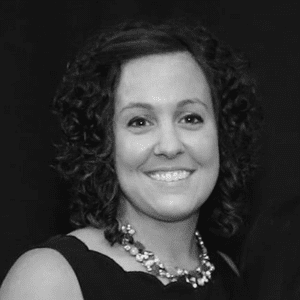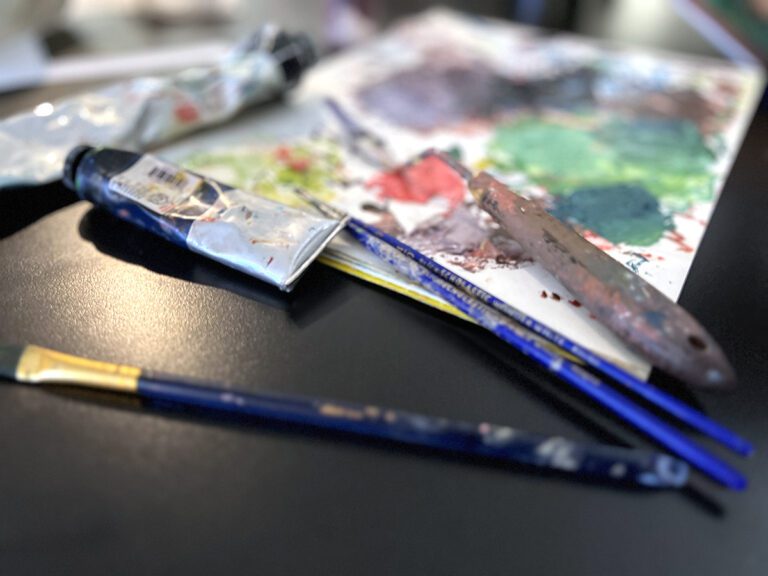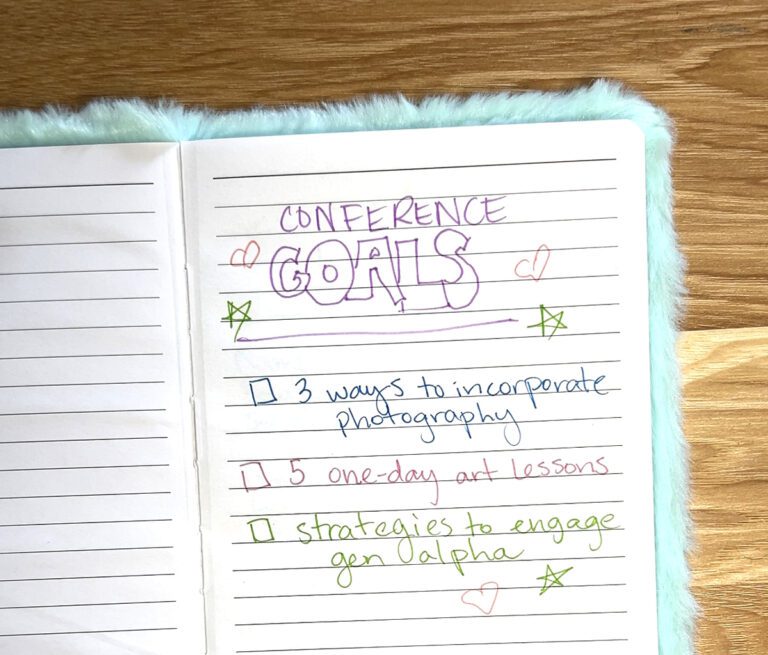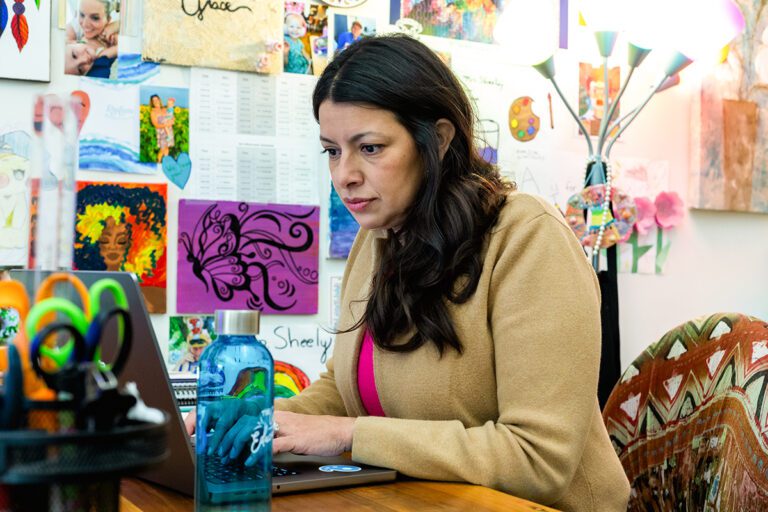The start of a new school year means the start of new Professional Learning Communities (PLCs) for many of us. If you’re lucky, you will be able to meet with like-minded art educators and focus on similar goals. However, many art teachers face a different reality.
Art teachers everywhere are expected to participate in PLCs but aren’t able to meet with anyone in their content area. If this is you, don’t worry. There is still hope!
Here are some helpful tips for making your PLC more meaningful, even if you are the only art teacher at the table.
1. Focus on Common Ground
During my very first year of PLCs, I was thrown in with all the “specials” and we were lost. We didn’t know how to talk with each other. How could we focus on common data and common goals when our subject matter ranged from signing a tune to shooting a basketball? Our instructional coach visited to help us brainstorm.
He said, “What do you all have in common?” – The same students!
“What do you all struggle with?” – Managing the large groups of students!
Ok, now we had a common goal – classroom management!
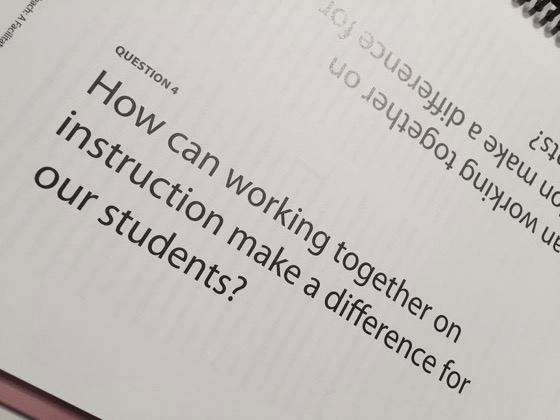
We dove into action, coming up with common behavior expeditions across our disciplines. We made matching behavior charts that were all hung in our classrooms. We talked about challenging students and how we handled them. This important, meaningful work stemmed from focusing on our common ground, NOT our differences.
2. Learn to Give a Little

Some teachers, especially at the secondary level, are put into PLCs with other content teachers. In this case, you may feel 100% left out. When they are talking about reading scores, you don’t have anything to contribute.
In this case, I encourage you to make the best of the situation, and “give a little.” This idea doesn’t mean you are selling your soul, but ask yourself, “What can I actually do to help these goals move forward without sacrificing the authenticity of my content area?”
For me, this meant chipping in with a literacy lesson. I’d been wanting to try bookmaking, and one of the first-grade teams had a literacy goal they were working on. So, we made books in art class, which were then taken back to the classroom for a writing activity. Students had ownership because they made their own books, I had a lesson that I would have done anyway, and the teachers were happy.
Let’s face it, sometimes there isn’t much you can contribute to the conversation in a PLC where you are the odd man out, but going into it with a negative attitude won’t help anyone. When in doubt, listen, learn, and focus on the big picture. If the entire school is achieving at a higher level, this does impact your art program and it’s an important factor in keeping your job, and your school, alive.
If you are still craving interaction with other art educators, all is not lost. Use social media to look for other art educators in your community, county or state. Social media is also a great place to ask those tough questions that no one in your building has the answers for and to engage in relevant discussions.
Good luck with your PLC this year, no matter who you are with!
If you are ARE in a rocking PLC with other art teachers, look here for some more helpful info about facilitating a thriving Art Ed PLC.
Images from Team to Teach: A Facilitator’s Guide to Professional Learning Teams by Anne Jolly
What is your PLC situation like?
What are some innovative ways you work with other teachers?
Magazine articles and podcasts are opinions of professional education contributors and do not necessarily represent the position of the Art of Education University (AOEU) or its academic offerings. Contributors use terms in the way they are most often talked about in the scope of their educational experiences.
